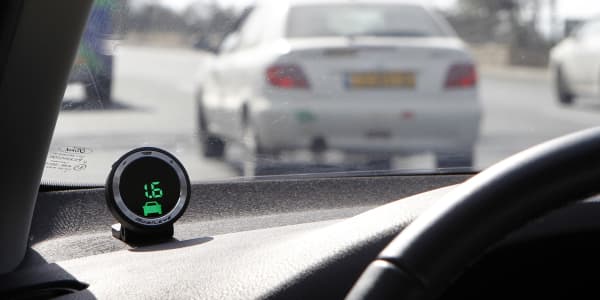Toyota's research arm has just announced itself on the Israeli start-up scene, confirming on Tuesday that it has led an early-stage funding round in Israel's Intuition Robotics.
Toyota Research Institute, TRI, the automaker's initiative in artificial intelligence, autonomous driving and home robotics, has a treasure chest of $1 billion and says it has led a $14 million series A round investment in the Israeli company.
"This investment is our first Israeli company, it will not be our last," TRI's Vice-President for Data and Business Development, Jim Adler, told CNBC.
"We're looking at Israeli start-ups across the board, from robotics, autonomy, data cloud, general artificial intelligence, deep learning."
TRI, set up in 2016, is part of a big push by Toyota into artificial intelligence for autonomous driving and home robotics with an emphasis on robotics for the elderly, the field in which Intuition Robotics is active. The Japanese automaker last month, said that it is considering more active strategies into autonomous driving, including mergers and acquisitions.
While TRI is based in the U.S., its interest in Israel reflects the changing Israeli-Japanese relationship over the last couple of years. Japan and Israel signed new business and cybersecurity agreements in May this year that are intended to double trade, which stood at some $3 billion in 2016, officials said.
"We're quite bullish on Israel," said Adler. TRI's interest in home robotics, with an emphasis on the elderly, flowed naturally from the autonomous driving push, he explained: "Cars are really just robots with wheel."

With rapidly aging populations both in Japan and the U.S., the overlap between autonomous driving and robotics for the elderly, was obvious, he said.
"One of the first things an older adult loses is their ability to drive and with that comes a real impact on their freedom and dignity. Accessibility to driving is really important."
Intuition Robotics, based in Ramat Gan near Tel Aviv, is developing a home robot for the elderly, to help with "active aging", called ElliQ. TRI's fit was immediate, said Adler, in terms of market, in terms of technology and also in attitude:
"We thought the company was taking a really thoughtful approach, not trying to do too much, approaching the problem with real thoughtfulness and respect, that's relatively unique in that space."
Other investors in the series A investment, besides TRI, include OurCrowd, iRobot, early seed investors Maniv Mobility, Terra Venture Partners, Bloomberg Beta, plus additional private parties.
Intuition Robotics' co-founder and CEO, Dor Skuler, told CNBC that the investment was not the only way that TRI and his company cooperate. "We've already started doing joint R&D in the field of motors and movement," he said.
The two companies complement each other, he said, because TRI is, "spending a lot of research and development dollars and attention on building the mechanical side of robots."
While Intuition Robotics, is working on the "social aspect" of robots. "A focus on the elderly population is a shared goal of both companies," said Skuler.
Intuition Robotics has opened a sales office in the U.S. and the investment is partly aimed at helping it grow its North America operation. It will be the first focus of the company's roll-out of ElliQ, possibly followed by Japan, said Skuler.
The focus on North America was not only a marketing decision but has to do with the way the interactive robot has been developed, he explained: "ElliQ in her first release only speaks English but more than English she also has a persona and that persona is built for the North American market."
The robot, which cannot move around the house but does have moving components to mimic body language as well as a screen on which it can show images or video, is meant to be a proactive companion to the elderly. It could prod users to go for walks, or call their children.
"We do have a feeling that people in other parts of the world might expect a different persona to be motivated. Also the design of the product might need to be different for an Asian customer than let's say a North American customer," said Skuler.
The benefits of having ElliQ in the home as an "active aging companion" could be innumerable but still have to be proven. Skuler cited research on loneliness among the elderly and associated physical and mental decline. To tackle all that, he admitted, was an "ambitious project for a company from Ramat Gan."




